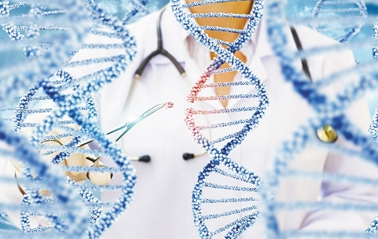
As the saying goes: People are not much. The "suspicious cloud" of the security of the CRISPR-Cas9 gene editing tool has not yet dissipated, and it has ushered in "a good start." According to the British "Nature" website, a recent paper reveals that the body's own immune system may destroy gene therapy based on CRISPR-Cas9 development, and suggests that scientists may need to find another way to cure the disease.
In response to this research, Dr. Li Wei of the China Institute of Zoology said in an interview with the Science and Technology Daily on February 8 that "the current research results are not the same as the human body's immune response to Cas9 protein or Cas9-mediated gene therapy. It is not possible to confirm that these potential immune responses are very serious. Before choosing whether to use Cas9 protein for clinical gene therapy, we still need more rigorous experiments to assess the related immune problems."
The human body will have an immune response to the Cas9 enzyme
CRISPR-Cas9 is a primitive immune system widely found in microorganisms that relies on an enzyme called Cas9 to cleave the sites defined by a particular RNA sequence. Researchers can change the sequence of this "guide RNA" to direct Cas9 to specific DNA fragments, thereby increasing the likelihood that such systems will correct certain gene mutations. In view of this, people generally have high hopes for CRISPR-Cas9, and believe that it can be used in the human body one day to treat a variety of diseases.
However, the so-called Cheng Xiao Xiao and Xiao He, Cas9 and other foreign proteins can also trigger a long-lasting immune response, and the two Cas9 enzyme versions most valued by molecular biologists are derived from the common bacteria in the human body - Staphylococcus aureus and Streptococcus pyogenes, which increases the chances of some people developing an immune response to these proteins.
This situation has also been confirmed by experiments. A team of 22 babies and 12 healthy adults analyzed blood samples from Stanford University's pediatric hematologists Matthew Bautis and Kenneth Weinberg and found that 79% of participants came from The Cas9 enzyme of S. aureus (ie SaCas9) produced antibodies; 65% of the participants produced antibodies against the Cas9 enzyme (SpCas9) from S. pyogenes. In another 12 adult-related experiments, 46% of T cells (an immune cell) that target SaCas9 were produced, but no T cell response to SpCas9 was found, but the researchers acknowledged that Perhaps the test methods they use are not sensitive enough to detect an immune response.
Researchers have pointed out that if the body's immune response can destroy gene therapy, then people who are treated may also face health risks. T cells that target Cas9 may disrupt cells expressing this protein, clear "corrected" cells, and potentially attack the body's own tissues.
Don't "talk about immune response"
However, for the latest research, Li Wei is not as "stunned" as Baotis, he explained: "The latest research found that there are antibodies against Cas9 protein or T cells that recognize Cas9 antigen in human blood, indicating that the human body has May produce an immune response to Cas9 protein. Given the high safety required for clinical trials and the widespread distribution of these two bacteria in the environment, the results of this study have important reference for the clinical use of Cas9-mediated gene editing technology. In terms of meaning, researchers need to more fully assess potential immune responses and risks before conducting clinical trials using CRISPR gene editing technology."
However, Li Wei further pointed out that the study is only the result of in vitro experiments. The current results are not equivalent to the serious immune response caused by Cas9 protein entering the human body. More rigorous experiments are needed for the immune response and safety problems caused by Cas9. Evaluation.
The future of application is still huge.
The latest research means that CRISPR-Cas9 gene therapy will "before the teacher died"? According to a report in Nature, it is unlikely that people will have a great interest in this approach and that there are plenty of alternatives to choose from.
Baotis envisioned two ideas: one for the treatment of sickle cell anemia—removing hematopoietic cells from a patient, correcting them with CRISPR-Cas9, and then injecting the cells back into the patient. Since exposure to Cas9 occurs in vitro, this approach is unlikely to be threatened by an anti-Cas9 immune response. Another possible solution is to develop the Cas9 system with bacteria that do not invade or infect humans.
Intellia Therapeutics' solution is to develop a Cas9 protein therapy that occurs in a short period of time and acts only within the cell. They believe that this potentially limits the chance of immune interference, even if the genome of the cell is edited in vivo. in this way.
Li Wei said: "In fact, even if Cas9 protein may cause serious immune reactions in some patients, there are corresponding solutions. First, more than a dozen protein tools have been proven to be effective in gene editing of human cells, and still On the other hand, there have been many studies on the modification of Cas9 protein to achieve specific purposes, such as reducing off-targetity. We can also modify the Cas9 protein to reduce its immunogenicity."
In addition, Li Wei further pointed out: "Although the CRISPR-Cas9 technology may still be efficient and accurate enough, and some unknown side effects, it is still one of the most medically promising technologies. Gene editing technology is also being researched and developed, and in the future we will be able to obtain a gene editing system with higher efficiency and versatility." (Technology Daily)
Face Recognition Thermometer,Face Recognition Thermometer Manufacturer,Face Recognition Thermometer Office,Face Recognition Thermometer Building
Zhuhai Mingke Electronics Technology Co., Ltd , https://www.zhmkdz-electronics.com